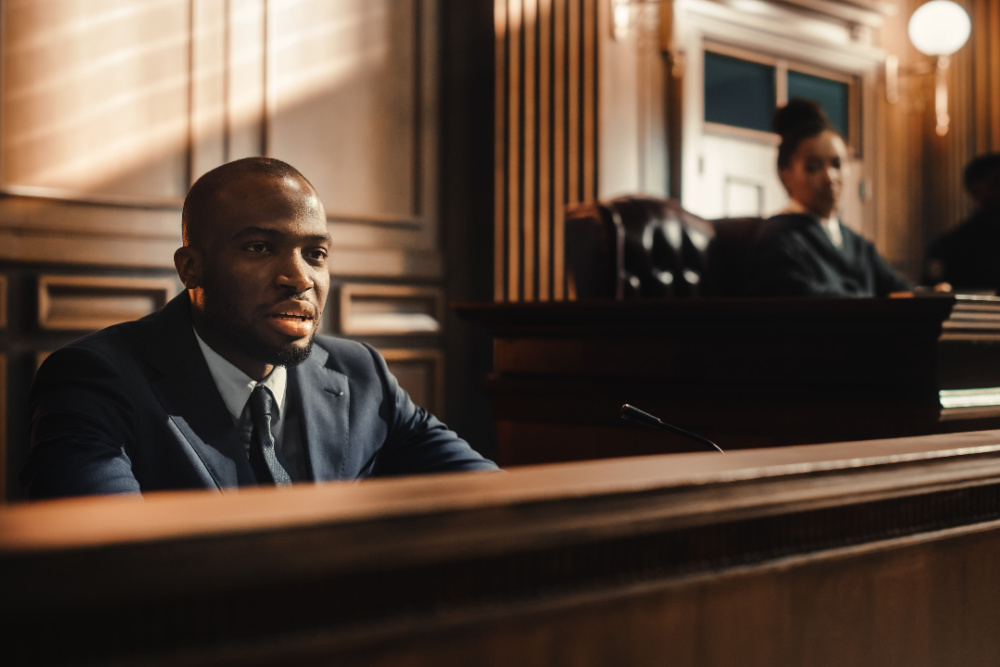
The twin pillars of any trial, direct and cross-examination, are crucial phases where cases are often won or lost. Preparing for these phases is both an art and a science. It requires a deep understanding of legal strategy, human psychology, and the nuances of courtroom dynamics. In direct examination, you present your witness and their story to the court clearly and compellingly. In contrast, cross-examination involves testing the credibility and reliability of the opposing party’s witnesses. Both require meticulous preparation and a keen understanding of legal tactics to sway the court in your favor effectively.
In this comprehensive guide, we will delve into strategies for preparing for both direct and cross-examination. These strategies will not only enhance your effectiveness in the courtroom but will also provide the groundwork for building a solid case that can withstand the rigors of trial.
Preparing for Direct Examination: Telling Your Story
Crafting a coherent narrative
Direct examination is your opportunity to lay out your case through your witnesses. Preparation should begin with crafting a coherent narrative that aligns with your legal strategy. This involves identifying the critical points each witness can contribute to your case and structuring their testimony to build your argument effectively. It’s crucial to ensure that the testimony is legally relevant, compelling, and easily understandable to the jury or judge.
Remember, the best direct examinations are those where the witness, rather than the attorney, is the focus. Encourage your witnesses to speak in their own words and avoid legal jargon. Their testimony should be clear, concise, and delivered in a manner that resonates with the jury. Your role is to guide them through their testimony, highlighting the most important aspects of their story in a way that supports your case.
Witness preparation and rehearsal
Witness preparation is key to a successful direct examination. This includes reviewing their testimony, clarifying any ambiguities, and ensuring they understand the legal significance of their statements. It is also essential to prepare them for the courtroom environment, which can be intimidating. Conduct mock examinations to familiarize them with the process and help them become comfortable speaking in a legal setting.
Rehearsals should focus on the content of the testimony and the manner of delivery. Encourage your witnesses to be confident and make eye contact, which helps establish credibility. Also, prepare them for potential objections and interruptions so they remain composed under pressure.
Navigating Cross-Examination: Dissecting the Opposition
Understanding the opponent’s strategy
Cross-examination is your chance to challenge the testimony of the opposing party’s witnesses. The key to an effective cross-examination is understanding the opponent’s strategy and finding ways to undermine it. This involves meticulously reviewing the witness’ prior statements, depositions, and other relevant materials to identify inconsistencies or exaggerations.
Your questioning during cross-examination should be pointed and purposeful. The goal is to create doubt about the witness’s credibility or the plausibility of their testimony. This requires careful listening, sharp questioning, and adapting quickly to the witness’s responses. The best cross-examiners can think on their feet and pivot their strategy as needed.
Techniques for effective cross-examination
Effective cross-examination often involves leading questions that require a simple ‘yes’ or ‘no’ answer. This technique keeps the witness from straying into areas that might reinforce their testimony. Additionally, the use of impeachment, where you confront the witness with prior inconsistent statements or actions, can be a powerful tool to discredit their testimony.
However, caution is vital. Aggressive or disrespectful questioning can backfire, especially with a sympathetic witness. The objective is to expose flaws in the witness’s testimony without alienating the jury. It’s a delicate balance that requires legal acumen and a deep understanding of human psychology.
Balancing Emotional Appeal with Factual Precision
The role of emotion in testimony
Balancing emotional appeal with factual precision is crucial in direct and cross-examination. While the facts of the case are paramount, how they are presented can significantly impact their reception. In direct examination, emotional appeal can make a witness more relatable and their testimony more impactful. However, it’s important that emotion does not overshadow the factual accuracy of their statements.
In cross-examination, while your primary goal is to challenge the credibility of the testimony, being overly aggressive or dismissive can create sympathy for the witness. Instead, a measured approach that calmly exposes inconsistencies or improbabilities in their testimony can effectively sway the jury’s opinion.
Crafting questions with precision
The art of questioning is at the heart of both direct and cross-examination. Every question should be crafted to elicit specific information that forwards your legal argument. In direct examination, questions should allow the witness to clearly and coherently present their part of the story. In cross-examination, questions should be designed to narrow the witness’s responses and control the narrative.
Precision in questioning also involves anticipating how the opposing counsel may object and preparing responses to those objections. This level of preparation requires a thorough understanding of the rules of evidence and courtroom procedures.
Conclusion: The Art of Preparation and Execution in Examination
Mastering direct and cross-examination is a critical skill for any legal practitioner. It requires a deep understanding of legal principles and the ability to craft and deliver effective questions. The preparation for these trial phases involves strategic planning, thorough witness preparation, and a nuanced approach to questioning that balances factual precision with emotional impact.
Are you looking for professional court reporting services for your next legal proceeding? If so, contact us today.
